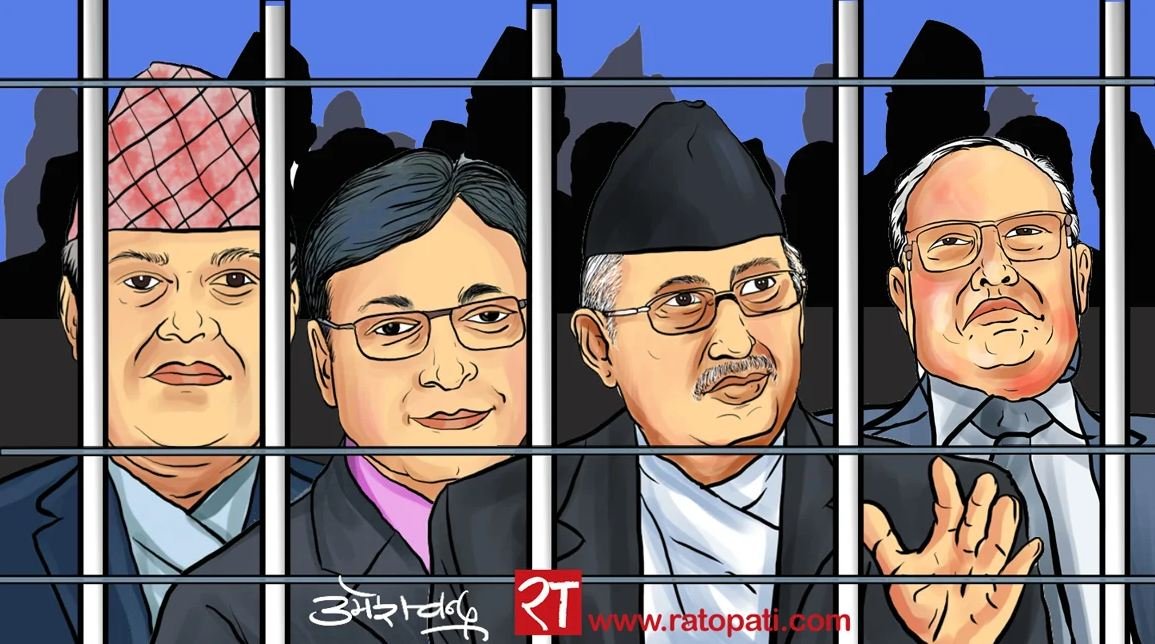The Fake Bhutanese Refugee Crisis: Unraveling Nepal’s Education Decline and Endangering Our Future

Education is the cornerstone of progress and development for any nation, shaping the minds of future leaders and providing tools for a prosperous society. However, in Nepal, a distressing decline in the education system has emerged, compounded by a grave threat—the ongoing Fake Bhutanese Refugee crisis. The fabricated crisis reflects not only on the decay of moral values among our leaders (maybe a cause of a linear decline in our education system for some time) but also poses a severe menace to the integrity and quality of education in the country. In this opinion article, I want to attract fellow Nepalese citizens’ attention to the repercussions of this crisis, shedding light on the detrimental effects it may have on future generations.
Within the Nepalese population, there is an alarming eagerness to leave the country at any cost, even assuming the guise of Bhutanese refugees to resettle elsewhere. This disconcerting trend speaks volumes about the current situation and reveals a stark national reality. It exposes the callousness of political leaders and individuals in critical positions such as the Home Minister, who are shamelessly involved in facilitating these deceptive acts for mere personal gains. This abhorrent behavior by public officeholders not only erodes trust but also sets a dangerous precedent, encouraging the abandonment of Nepalese citizenship and the theft of someone else’s identity.
One must question the motivations of those who intend to resettle using false identities. Are they driven by a genuine desire to implement their education and skills in meaningful ways abroad, due to a lack of opportunities in our own country? Regrettably, the answer is a resounding no. These individuals are aware of the challenges associated with Nepal’s education system and the diminished value of certificates issued by once-reputable educational institutions in Nepal. The politicization and corruption plaguing the education system have rendered its qualifications less recognized internationally. The lack of credibility and integrity has created a sense of desperation among Nepalese citizens, prompting them to forsake their own identities and academic achievements in search of a better life abroad.
While attention is often fixated on the perpetrators behind this fabricated refugee crisis, there is a larger group silently observing the unfolding drama—the future generation of our nation, our children, and students within our education system. The actions or lack thereof, exhibited by our police and judicial system in response to this crisis, will have profound and far-reaching consequences. Among the culprits are the so-called “thought leaders”, political figures who were once idolized but have fallen from their grace due to their greed for money and personal gains. Along their ascent, they garnered a following of admirers who regarded them as moral exemplars. This alarming situation raises concerns about the lessons the children from these supporters’ families will learn. Will they dismiss this crisis as an unfortunate incident, a commonplace occurrence within the current leadership at local, state, and national levels? Such a conclusion would be the most unfortunate takeaway for our nation. Consequently, the resolution of this crisis carries lasting implications for our society, making it imperative for the judiciary, law enforcement, and responsible government agencies to ensure that justice is served.
Compounding the crisis, is the fragility of Nepal’s education system, as our children are left to navigate through these challenging times without reliable guides. Teachers, who should serve as pillars of knowledge and moral guidance, often lack the professionalism and commitment necessary for their roles. The erosion of moral values from various sources further undermines the integrity of education, leaving young minds adrift without worthy role models to emulate. As a result, our youth bear the heavy burden of grappling with the acquittal of those who acted in bad faith, all while they are still in the process of shaping their understanding of society and the world around them.
A stern warning must be delivered to those responsible for this crisis. Although the responsible stakeholders may have tarnished their past and present, they must not dare to jeopardize the future of our nation by setting a reckless precedent for our future leaders to follow. The consequences of their actions extend far beyond individual lives; they have the potential to shape the destiny of our country for generations to come. It is incumbent upon all stakeholders, including government officials, educators, and parents, to take a firm stand against leniency, or acquittal of responsible individuals regardless of who they are, and safeguard the future and legacy of Nepal. We don’t want to see the Lalita Niwas case 2.0, once more.
The fake Bhutanese Refugee crisis unfolding in Nepal represents a distressing symptom of the overall decline in our education system while simultaneously threatening the very fabric of our society. The erosion of moral values, the pursuit of personal gain, and the abandonment of Nepalese citizenship all tread a dangerous path that endangers our future. It is of utmost importance that we collectively address this crisis, rectify the flaws in our governing system, and ensure that the coming generations are guided by ethics, integrity, and an unwavering commitment to education. Only through such concerted efforts can we forge a path toward a brighter and more prosperous future for Nepal.




Leave Comment